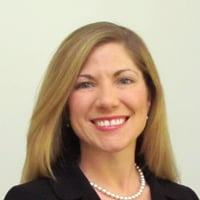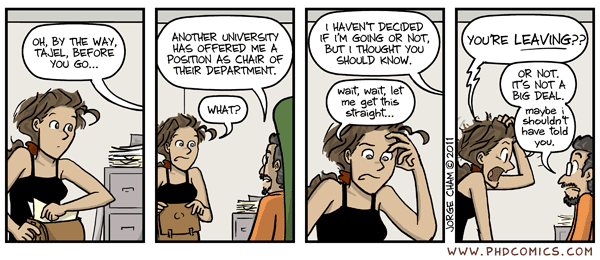2017 Conference on Economic Design: York, United Kingdom, June 14-16, 2017
The tenth bi-annual Conference on Economic Design will be held at the University of York, United Kingdom, on three full days June 14-16 (Wed--Fri), 2017.
|
I'll post market design related news and items about repugnant markets.See also my Game theory, experimental economics, and market design page. I have a general-interest book on market design: Who Gets What--and Why The subtitle is "The new economics of matchmaking and market design."
The tenth bi-annual Conference on Economic Design will be held at the University of York, United Kingdom, on three full days June 14-16 (Wed--Fri), 2017.
|
Market Design Working Group Meeting
|
Michael Ostrovsky and Parag Pathak, Organizers
|
October 28-29, 2016
|
SIEPR
Koret-Taube Conference Center Stanford University 366 Galvez Street Stanford, CA |
|
|
Friday, October 28
| |
8:30 am
|
Continental Breakfast
|
9:00 am
|
Darrell Duffie, Stanford University and NBER
Haoxiang Zhu, Massachusetts Institute of Technology and NBER Size Discovery |
Ahmad Peivandi, Georgia State University
Participation and Unbiased Pricing in CDS Settlement Mechanisms | |
10:30 am
|
Break
|
11:00 am
| |
Hugo Hopenhayn, University of California at Los Angeles and NBER
Maryam Saeedi, Carnegie Mellon University Bidding Dynamics in Auctions | |
12:30 pm
|
Lunch
|
2:00 pm
|
Christina Aperjis, Power Auctions LLC
Lawrence Ausubel, University of Maryland Oleg Baranov, University of Colorado Boulder Thayer Morrill, North Carolina State University Efficient Procurement Auctions with Increasing Returns |
3:30 pm
|
Break
|
4:00 pm
|
John Hatfield, University of Texas at Austin
Scott Duke Kominers, Harvard University Hidden Substitutes |
Paul Milgrom, Stanford University
Deferred Acceptance Auctions Without Substitutes | |
5:30 pm
|
Adjourn
|
6:30 pm
|
Dinner
Il Fornaio Restaurant 520 Cowper Street Palo Alto, CA |
Saturday, October 29
| |
8:30 am
|
Continental Breakfast
|
9:00 am
|
Gabriel Carroll, Stanford University
Ilya Segal, Stanford University Robustly Optimal Auctions with Unknown Resale Opportunities |
10:30 am
|
Break
|
11:00 am
| |
Marek Pycia, University of California at Los Angeles
Peter Troyan, University of Virginia Obvious Dominance and Random Priority | |
12:30 pm
|
Lunch
|
2:00 pm
|
Benjamin Roth, Massachusetts Institute of Technology
Ran Shorrer, Pennsylvania State University Making it Safe to Use Centralized Markets: Epsilon-Dominant Individual Rationality and Applications to Market Design |
Michal Feldman, Hebrew University of Jerusalem
Nicole Immorlica, Northwestern University Brendan Lucier, Microsoft Research Tim Roughgarden, Stanford University Vasilis Syrgkanis, Microsoft Research Efficiency Guarantees in Large Markets | |
3:30 pm
|
Break
|
4:00 pm
|
David Delacretaz, University of Melbourne
Scott Duke Kominers, Harvard University Alexander Teytelboym, University of Oxford Refugee Resettlement |
Tommy Andersson, Lund University
Lars Ehlers, Université de Montréal Assigning Refugees to Landlords in Sweden: Stable Maximum Matchings | |
5:30 pm
|
Adjourn
|
 That may change with the publication ofInside Graduate Admissions: Merit, Diversity and Faculty Gatekeeping, out this month from Harvard University Press. Julie R. Posselt (right), the author and an assistant professor of higher education at the University of Michigan, obtained permission from 6 highly ranked departments at three research universities to watch their reviews of candidates, and she interviewed faculty members at four others. All the departments were ranked as among the top programs in their disciplines. To obtain this kind of access (not to mention institutional review board approval), Posselt had to offer complete anonymity. While her book identifies comments as coming from people in particularly disciplines, she reveals nothing about where the departments are, and she also hides most details about the applicants they reviewed.
That may change with the publication ofInside Graduate Admissions: Merit, Diversity and Faculty Gatekeeping, out this month from Harvard University Press. Julie R. Posselt (right), the author and an assistant professor of higher education at the University of Michigan, obtained permission from 6 highly ranked departments at three research universities to watch their reviews of candidates, and she interviewed faculty members at four others. All the departments were ranked as among the top programs in their disciplines. To obtain this kind of access (not to mention institutional review board approval), Posselt had to offer complete anonymity. While her book identifies comments as coming from people in particularly disciplines, she reveals nothing about where the departments are, and she also hides most details about the applicants they reviewed. |
| Raymond Fisman will bring an eclectic approach as the first Slater Family Professor in Behavioral Economics. Photo by Leslye Smith |



 |
| http://www.phdcomics.com/comics/archive.php?comicid=1465 |
 |
| cardinal: Pantone 201 |